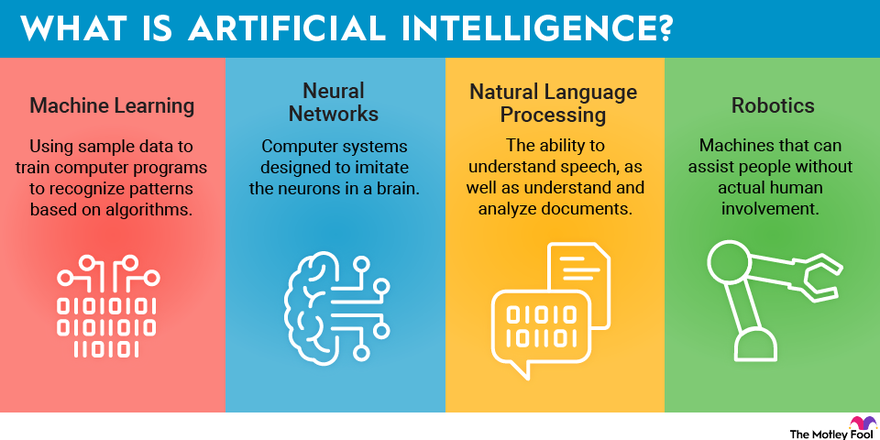
Richard Whittle receives funding from the ESRC, Research England and was the recipient of a CAPE Fellowship.
Stuart Mills does not work for, consult, own shares in or receive financing from any company or organisation that would take advantage of this post, forum.altaycoins.com and has divulged no relevant affiliations beyond their academic consultation.
Partners
University of Salford and University of Leeds supply financing as founding partners of The Conversation UK.
View all partners
Before January 27 2025, it's fair to state that Chinese tech company DeepSeek was flying under the radar. And then it came significantly into view.
Suddenly, everyone was speaking about it - not least the shareholders and executives at US tech firms like Nvidia, Microsoft and setiathome.berkeley.edu Google, which all saw their company values tumble thanks to the success of this AI startup research study laboratory.
Founded by an effective Chinese hedge fund manager, the lab has taken a various approach to expert system. One of the major differences is expense.
The advancement costs for Open AI's ChatGPT-4 were said to be in excess of US$ 100 million (₤ 81 million). DeepSeek's R1 model - which is used to create material, solve logic problems and develop computer code - was reportedly used much less, less powerful computer chips than the likes of GPT-4, leading to expenses declared (but unproven) to be as low as US$ 6 million.

This has both financial and geopolitical effects. China is subject to US sanctions on importing the most innovative computer system chips. But the reality that a Chinese start-up has actually had the ability to develop such an innovative design raises questions about the efficiency of these sanctions, and whether Chinese innovators can work around them.
The timing of DeepSeek's new release on January 20, as Donald Trump was being sworn in as president, signified a challenge to US dominance in AI. Trump reacted by describing the moment as a "wake-up call".

From a financial viewpoint, the most visible effect might be on customers. Unlike rivals such as OpenAI, which recently started charging US$ 200 monthly for access to their premium models, DeepSeek's similar tools are currently free. They are also "open source", enabling anybody to poke around in the code and reconfigure things as they wish.
Low costs of development and effective use of hardware seem to have actually paid for DeepSeek this cost advantage, and have currently required some Chinese rivals to decrease their rates. Consumers must anticipate lower costs from other AI services too.
Artificial investment
Longer term - which, in the AI industry, opentx.cz can still be remarkably quickly - the success of DeepSeek might have a huge effect on AI investment.
This is due to the fact that so far, practically all of the big AI business - OpenAI, Meta, Google - have actually been having a hard time to commercialise their designs and pay.
Until now, this was not always a problem. Companies like Twitter and Uber went years without making profits, prioritising a commanding market share (great deals of users) rather.

And kenpoguy.com business like OpenAI have been doing the same. In exchange for constant investment from hedge funds and other organisations, they assure to build much more effective models.
These designs, business pitch most likely goes, will enormously enhance productivity and after that profitability for companies, which will wind up happy to spend for AI products. In the mean time, all the tech companies require to do is gather more information, buy more effective chips (and more of them), and establish their models for longer.
But this costs a lot of money.
Nvidia's Blackwell chip - the world's most effective AI chip to date - expenses around US$ 40,000 per unit, and AI companies frequently require tens of thousands of them. But already, AI companies have not really struggled to bring in the required investment, coastalplainplants.org even if the amounts are big.
DeepSeek might change all this.
By demonstrating that developments with existing (and maybe less advanced) hardware can attain similar efficiency, it has actually offered a caution that tossing cash at AI is not ensured to pay off.
For example, prior to January 20, it may have been presumed that the most advanced AI models need enormous data centres and other infrastructure. This suggested the likes of Google, Microsoft and OpenAI would face minimal competitors due to the fact that of the high barriers (the large expense) to enter this market.
Money concerns
But if those barriers to entry are much lower than everybody believes - as DeepSeek's success suggests - then lots of huge AI financial investments suddenly look a lot riskier. Hence the abrupt result on huge tech share prices.
Shares in chipmaker Nvidia fell by around 17% and ASML, which creates the devices required to produce innovative chips, also saw its share cost fall. (While there has actually been a slight bounceback in Nvidia's stock price, it appears to have settled below its previous highs, reflecting a brand-new market truth.)
Nvidia and ASML are "pick-and-shovel" business that make the tools needed to produce an item, rather than the item itself. (The term comes from the idea that in a goldrush, the only individual ensured to make money is the one offering the picks and shovels.)
The "shovels" they offer are chips and chip-making devices. The fall in their share costs originated from the sense that if DeepSeek's much cheaper method works, the billions of dollars of future sales that investors have actually priced into these companies might not materialise.
For the likes of Microsoft, wiki.lexserve.co.ke Google and Meta (OpenAI is not openly traded), the cost of structure advanced AI might now have fallen, implying these firms will need to spend less to remain competitive. That, for them, could be a great thing.
But there is now doubt regarding whether these business can effectively monetise their AI programmes.
US stocks make up a traditionally big portion of worldwide investment right now, and innovation business make up a traditionally big percentage of the worth of the US stock exchange. Losses in this market might force investors to sell other financial investments to cover their losses in tech, leading to a whole-market slump.
And it shouldn't have actually come as a surprise. In 2023, bphomesteading.com a leaked Google memo alerted that the AI market was exposed to outsider disturbance. The memo argued that AI companies "had no moat" - no defense - versus rival designs. DeepSeek's success might be the evidence that this holds true.







